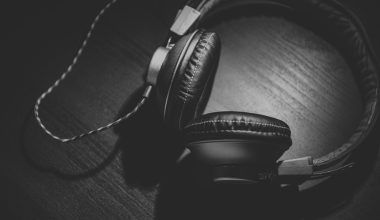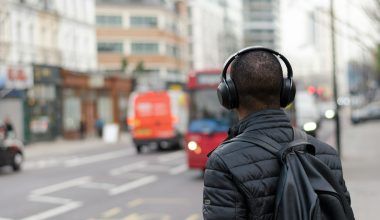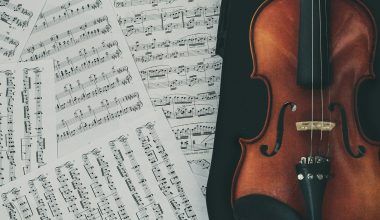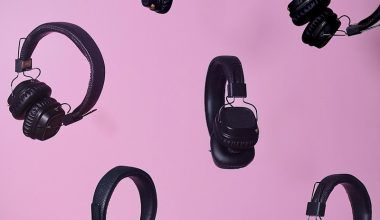Imagine a world without music. It feels dull, right? That’s because music has a magical way of making us feel alive. Whether it’s a joyful tune or a soft melody, music has healing power. It’s not just about entertainment. Music heals us, helps us, and brings happiness. This blog is all about how music can make our lives better and why it’s so important for our well-being.
What Does It Mean When We Say “Music Has Healing Power”?
When we say music has healing power, we’re talking about how it can make us feel better. Music can calm us when we’re upset, cheer us up when we’re sad, and even help us focus when we’re stressed. For centuries, people have used music as a form of therapy. It’s not just a belief—it’s science too!
Music in History: Healing Through the Ages
Did you know ancient people believed music could cure illnesses? Thousands of years ago:
- In Greece, people played music to help with sleep and relaxation.
- India, ragas (special melodies) were believed to heal the mind and body.
- In Africa, drumbeats were used in rituals to help people feel connected and strong.
These traditions prove that music has healing power, and even today, it continues to help us.
How Does Music Heal?
The Magic in Your Brain
Music works like magic on the brain. When you listen to a song you love:
- Your brain releases dopamine, the “feel-good” chemical.
- Your stress hormone, cortisol, goes down, helping you feel calmer.
Music and Your Body
Music doesn’t just make you feel good—it actually helps your body too:
- Slow music can make your heart beat slower, which is great for calming down.
- Happy tunes can boost your energy, perfect for a morning routine.
Whether it’s calming nerves or boosting energy, music has healing power in every note.
Music Therapy: Healing with a Purpose
What is Music Therapy?
Music therapy is when trained professionals use music to help people heal. It’s like talking to a therapist but with songs, instruments, or sounds.
How Does it Work?
- Listening Therapy: People listen to calming or happy music to feel better.
- Playing Instruments: Patients play instruments to express feelings they can’t put into words.
- Singing Therapy: Singing helps people build confidence and joy.
Real-Life Benefits of Music Therapy
- Stress and Anxiety: Soft music helps people relax after a tiring day.
- For Kids with Autism: Music helps them express themselves better.
- For Patients with Alzheimer’s: Music brings back precious memories.
This shows that music has healing power not just for the mind but also for the soul.
Music’s Role in Physical Healing
Pain Relief
When you’re in pain, music can be like medicine. Doctors have found that listening to calming tunes helps people feel less pain after surgeries or injuries.
Better Sleep
Struggling to sleep? Try listening to soothing music before bedtime. It helps your mind relax and makes it easier to fall asleep.
Boosting Your Heart
Did you know slow music can make your heart healthier? It helps lower blood pressure and keeps your heart calm.
Building Immunity
Yes, music can even make your immune system stronger! Happy songs help your body create antibodies, which fight illnesses.
Music for Mental Health
Uplifts Mood
Ever felt a sudden wave of happiness while listening to a favorite song? That’s music boosting your mood. It’s like a hug for your mind.
Improves Focus
Soft background music helps you concentrate, whether you’re studying or working.
Reduces Depression
When words fail, music speaks. Many therapists use music to help people deal with sadness.
Fights Loneliness
Music can make you feel like you’re not alone. Whether it’s a love song or a spiritual hymn, music connects you to others emotionally.
Different Types of Music and Their Healing Powers
- Classical Music: Perfect for relaxing and improving concentration.
- Nature Sounds: Rain or ocean waves help you meditate.
- Pop Music: Great for cheering up or getting motivated.
- Instrumental Music: Ideal for deep thinking and creativity.
Each type of music shows how music has healing power in its unique way.
Personal Stories: How Music Changed Lives
Riya’s Journey with Anxiety
Riya used to feel anxious every day. But when she started listening to soft piano music every morning, she noticed a big change. It helped her feel calm and ready to face the day.
Arjun’s Road to Recovery
After an accident, Arjun struggled with pain. His doctor recommended music therapy. Listening to his favorite songs made him feel stronger and less focused on the pain.
How to Use Music to Heal Yourself
You don’t need a therapist to enjoy the healing power of music. Here are simple ways to make music a part of your life:
- Start Your Day with Music: Play an uplifting playlist every morning.
- Relax Before Bed: Listen to soft tunes 30 minutes before sleep.
- Create a Mood Playlist: Have songs ready for different moods—happy, sad, or relaxing.
- Sing Along: Don’t be shy! Singing along to your favorite song can instantly boost your mood.
Music for Spiritual Healing
Many people use music to connect with their inner selves. Devotional songs, chants, or even soft meditative sounds can bring peace to the soul. This is another way music has healing power, helping us feel balanced and grounded.
Why Everyone Should Believe in the Healing Power of Music
Music is not just for fun. It’s a tool for health and happiness. It’s free, it’s everywhere, and it’s for everyone. Whether you’re feeling down, stressed, or just need a break, music is there for you. So next time you feel overwhelmed, remember that music has healing power. Put on your favorite song and let it work its magic.
Final Thoughts
Music isn’t just something we hear. It’s something we feel, live, and experience. Its ability to heal our hearts and minds makes it a gift to humanity. From ancient rituals to modern therapy, the idea that music has healing power has stood the test of time. Let’s cherish this gift and make it a part of our daily lives.
Related Articles:
For further reading, explore these related articles:
- The Top Musicians in the World: Legends and Rising Stars
- Christmas Holiday Songs List: The Perfect Playlist for the Festive Season
For additional resources on music marketing and distribution, visit Deliver My Tune.






